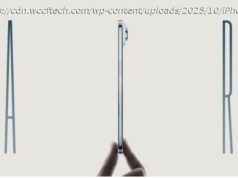THE SMARTPHONE MARKET is no longer a two-horse race between Samsung and Apple, as Huawei has taken the number two spot for the first time. That…
THE SMARTPHONE MARKET is no longer a two-horse race between Samsung and Apple, as Huawei has taken the number two spot for the first time.
That’s according to IDC (though Canalys and Strategy Analytics both agree) which reports that Huawei – with 54.2 million smartphones shipped in Q2 – is now the world’s second-largest smartphone flogger, behind market leader Samsung and ahead of third-place Apple.
Despite Huawei’s struggles to gain a foothold in the US, the firm saw its share of the global market increase by more than 40 per cent year-on-year to hit a new high of 15.8 per cent in Q2 2018. This is thanks to its success in China where it holds a ‚record‘ 27 per cent of the market, IDC notes, along with the success of its Huawei P20 and P20 Pro flagships and cheaper Honor-branded mobes.
„The continued growth of Huawei is impressive, to say the least, as is its ability to move into markets where, until recently, the brand was largely unknown,“ said Ryan Reith, program vice president at IDC.
First-place Samsung was the only vendor in IDC’s top five to lose market share year-on-year, with sales slipping from 79.8 million in Q2 2017 to 71.5 million in the latest quarter. This, as Samsung itself admits, can be credited to „sluggish“ sales of its Galaxy S9, which has reportedly suffered the lowest sales of any flagship Samsung smartphone since 2012’s Galaxy S3.
All eyes are now on the Galaxy Note 9, which will be unveiled in just over a week’s time on 9 August .
Despite slipping into third place, Apple’s share of the market grew 0.3 points (from 11.8 per cent to 12.1 per cent) in Q2. As the firm revealed during its earnings call on Tuesday, the iPhone X remains the firm’s most popular device and saw the average iPhone selling price hit $724, well above the expected $694.
IDC notes that Apple will likely move back into the number two spot following the release of its 2018 iPhone lineup later this year.
Rounding off IDC’s top five list are Chinese firms Xiaomi and Oppo, which claimed 9.3 per cent and 8.6 per cent of the global market, respectively.
Overall, OEMs shipped a total of 348.2 million smartphones worldwide in Q2 2018, down 1.8 per cent from the 348.2 million units in Q2 2017. µ






